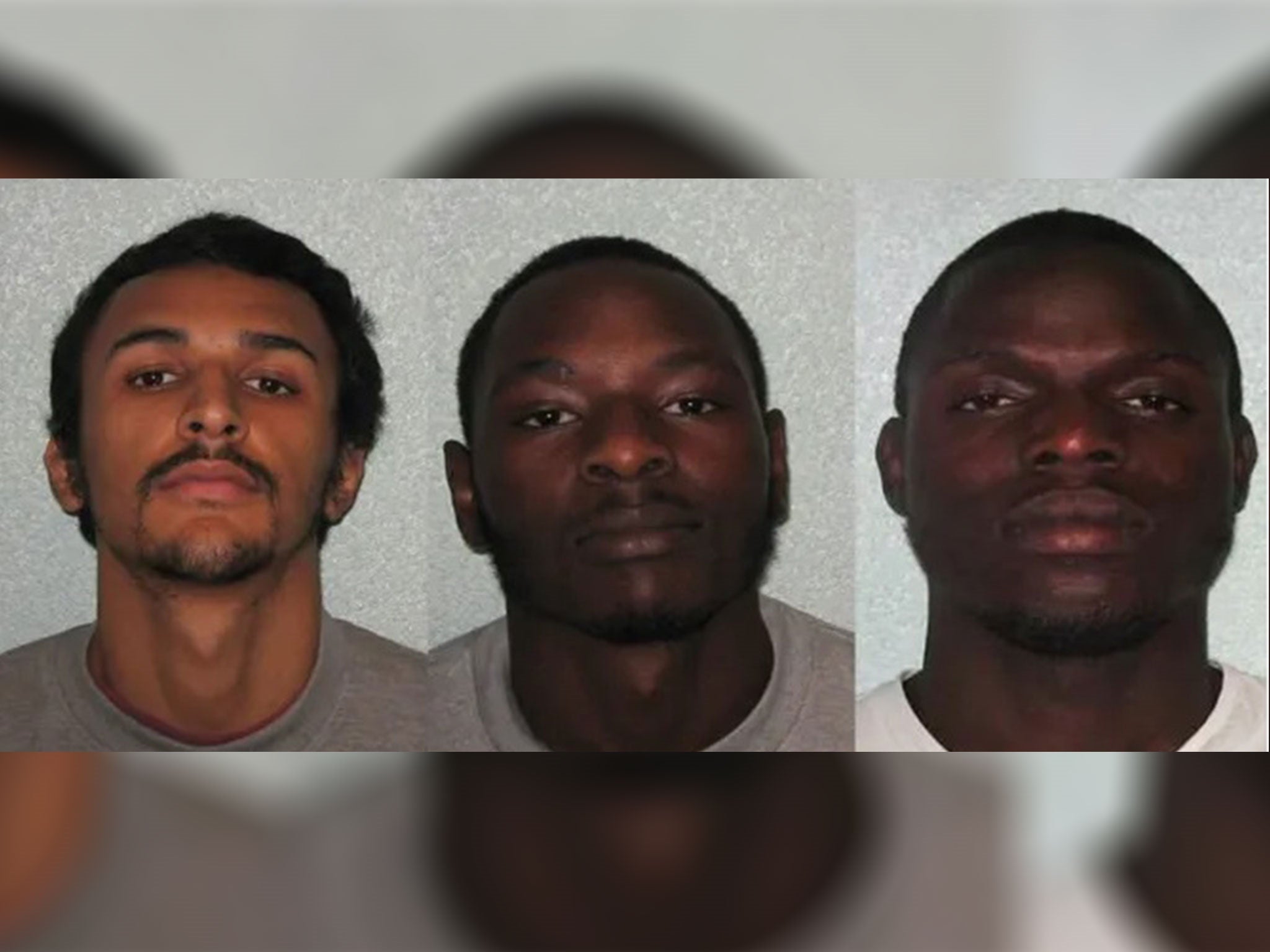'County lines' gang who forced children to deal drugs convicted of human trafficking under modern slavery laws
Group groomed vulnerable teenagers to control their movements and make them sell crack and heroin

Gangsters who used children as young as 14 to smuggle and sell crack and heroin in a “county lines” operation have been convicted under modern slavery legislation, in a landmark case.
Dean Alford, Michael Karemera and Glodi Wabelua trafficked six “vulnerable” south London teenagers, controlling their movements, the Inner London Crown Court heard.
The trio recruited and groomed young and vulnerable people to transport and sell Class A drugs in Hampshire for up to £2,000 a day, the jury was told.
The organised crime group used mobile phones to make deals. Whenever class A drugs were available, the gang texted customers using special drugs lines and buyers would call back to place orders – up to 300 a day.
Alford, Karemera and Wabelua frequently met the teenage victims at night to restock the drug supplies and to arrange the drug deals in Portsmouth.
The victims had to travel to the city on many occasions to restock drugs, where they were made to stay in drug users’ homes. They would pass on up to £2,000 a day from the deals.
One of the six, a vulnerable man who tried to extricate himself from the gang lifestyle, was “stripped naked and had a gun placed in his mouth, threatening him with his life”, the court heard.
The three 25-year-olds, who were jailed in 2016 for a total of nearly 30 years for drug offences, were convicted of human trafficking and will be sentenced next month.

Alford, of Canterbury, Kent, and Karemera, of Lewisham, southeast London, were both charged with three counts of trafficking. Alford pleaded guilty at the close of the prosecution’s case, and Karemera pleaded guilty part-way through cross-examination.
Wabelua, of Tottenham, north London, was found guilty of one count of trafficking.
The three will be sentenced on 14 May.
The court heard that the victims were too scared to provide statements to police about their ordeal so detectives used DNA and mobile phone evidence to prove the gang were controlling them and their freedom of movement.
“County lines”, in which city-based gangs identify rural markets to flood with some of the hardest drugs, have been a surging problem in recent years.
The National Crime Agency estimates there are more than 720 lines in England and Wales alone, and that county lines are present in every police force area.
Specialist prosecutor Kate Mulholland said: “This case represents one of the few times that drug dealers have been prosecuted for arranging the travel and exploitation of teenage couriers. We were also able to prosecute this landmark case without the need for the children, who were victims of crime, to give evidence.”
Bookmark popover
Removed from bookmarks